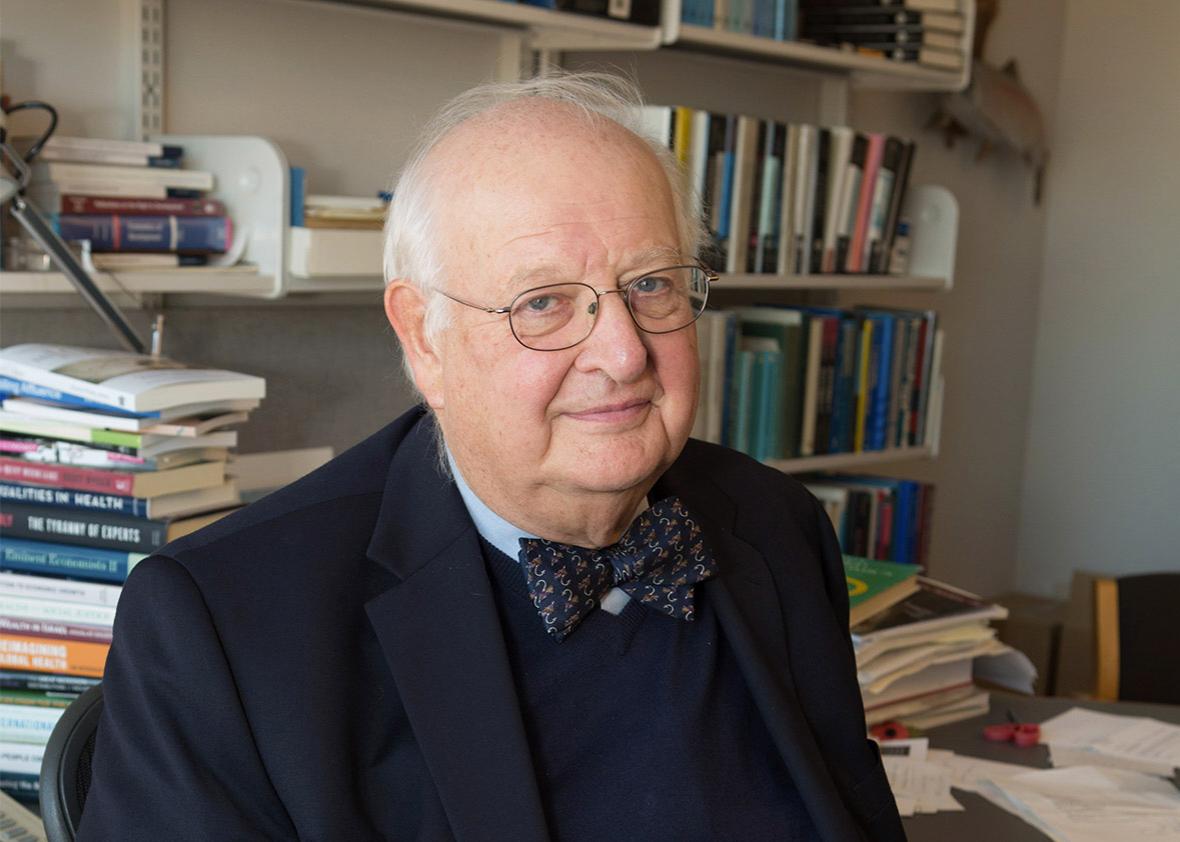On Monday, Angus Deaton, a British-American economist and professor at Princeton University, won the 2015 Nobel Memorial Prize in Economics for his work on “consumption, poverty, and welfare.” As that description might suggest, Deaton’s academic interests are quite vast. His areas of research include “poverty in the world and in India,” “health status and economics,” and “household surveys.” His list of papers and publications is similarly extensive.
In addition to all that, Deaton has also focused a good deal on income inequality. The topic has appeared in both the biannual “Letter from America” he pens for the Royal Economic Society’s Newsletter and, more prominently, in his book on 250 years of income inequality, The Great Escape. (A book which, incidentally, was released in October 2013, several months before the English-language version of Thomas Piketty’s Capital in the Twenty-First Century). In his April 2014 letter, for example, Deaton pointed out how the United States appeared to have suddenly “rediscovered” income inequality following decades of stagnant median wages and dramatic wealth accumulation at the very top. “There are many unfamiliar things in a new country,” he wrote, “and one of the most immediate, for me, when I first came to America, was the lack of interest in inequality, among either academics or the general public.” And:
In politics too, income inequality had little traction. Americans, unlike the British, are not interested in or disturbed by stories of ‘fat cats’, indeed they rather approve of them. Attempts by Democratic politicians to talk about inequality or redistribution were effectively met by cries of ‘class warfare’ from the Republicans. Americans, we were told, believed in the American Dream, that everyone could get rich if they tried hard enough. It was equality of opportunity that was important, not inequality of outcomes, and America, so the story went, was the land of opportunity.
As for what such newly rediscovered gaps in equality might mean, The Great Escape offers the following commentary (via Cardiff Garcia):
There is much to be said for equality of opportunity, and for not penalizing people for the success that comes from their own hard work. Yet, compared with other rich countries, and in spite of the popular belief in the American dream that anyone can succeed, the United States is in fact not particularly good at actually delivering equal opportunities …
Even if we believe that equality of opportunity is what we want, and don’t care about inequality of outcomes, the two tend to go together, which suggests that inequality itself is a barrier to equal opportunity.
And while some feel that concerns about poverty get too easily conflated with angst over the super-wealthy, or “envy of the rich,” Deaton disagrees:
The very wealthy have little need for state-provided education or health care; they have every reason to support cuts in Medicare and to fight any increase in taxes. They have even less reason to support health insurance for everyone, or to worry about the low quality of public schools that plagues much of the country. They will oppose any regulation of banks that restricts profits, even if it helps those who cannot cover their mortgages or protects the public against predatory lending, deceptive advertising, or even a repetition of the financial crash.
To worry about these consequences of extreme inequality has nothing to do with being envious of the rich and everything to do with the fear that rapidly growing top incomes are a threat to the wellbeing of everyone else.
This might not be the work that Deaton won his Nobel for, but with 2016 ramping up and subjects like the economy and income inequality likely coming back into focus, it’s every bit as worth revisiting. In related news: Princeton’s economics department canceled a class this afternoon and asked students to attend the university’s press conference for Deaton instead—“you will get much more out of going to that than of the marginal econometrics lecture.”
